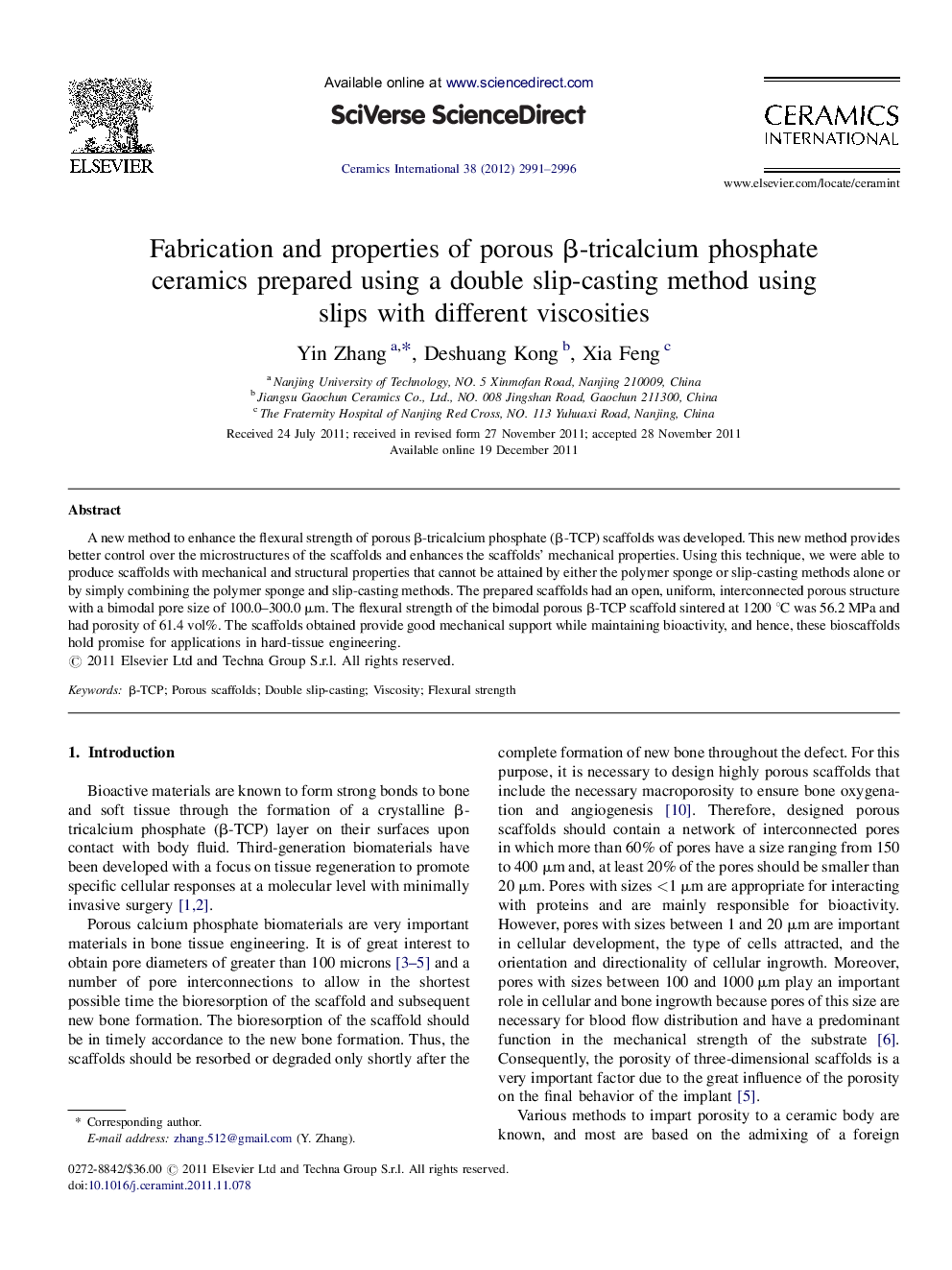| Article ID | Journal | Published Year | Pages | File Type |
|---|---|---|---|---|
| 1463580 | Ceramics International | 2012 | 6 Pages |
A new method to enhance the flexural strength of porous β-tricalcium phosphate (β-TCP) scaffolds was developed. This new method provides better control over the microstructures of the scaffolds and enhances the scaffolds’ mechanical properties. Using this technique, we were able to produce scaffolds with mechanical and structural properties that cannot be attained by either the polymer sponge or slip-casting methods alone or by simply combining the polymer sponge and slip-casting methods. The prepared scaffolds had an open, uniform, interconnected porous structure with a bimodal pore size of 100.0–300.0 μm. The flexural strength of the bimodal porous β-TCP scaffold sintered at 1200 °C was 56.2 MPa and had porosity of 61.4 vol%. The scaffolds obtained provide good mechanical support while maintaining bioactivity, and hence, these bioscaffolds hold promise for applications in hard-tissue engineering.
